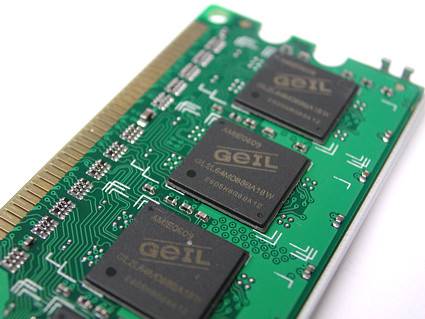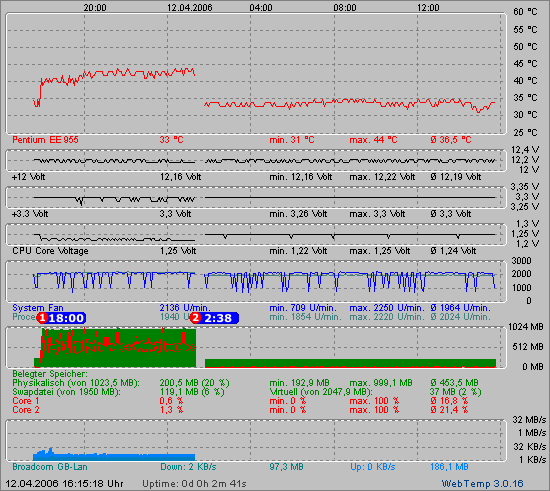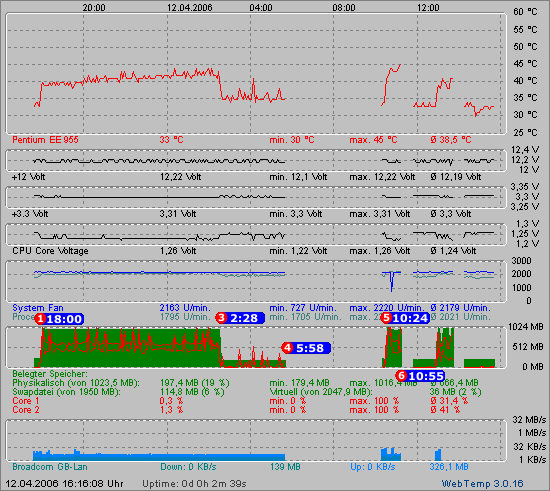Live Memory Test: Overclock 'Em Till They Crash
Get Tom's Hardware's best news and in-depth reviews, straight to your inbox.
You are now subscribed
Your newsletter sign-up was successful
Update 1: GeIL Retail Memory Ran 12% Slower Than Test Samples
The first day of our live memory stress test has already been very interesting. We stress-test the memory in alphabetical order, which is why GeIL was the first candidate. Its DDR2-667 memory had to endure the strain over a period of 12 hours, and GeIL's review samples were able to reach a maximum clock speed of 471 MHz, which corresponds to DDR2-942. However, the memory that we bought in retail already crashed at 421 MHz - despite it being exactly the same product. While memory vendors report clock speed tolerances of 2-3%, this difference resembles a puzzling 12% variance. Since we do not know the reason, we asked GeIL for a statement.
Stress Test Log
The stress test commenced at 6 pm CET in our Munich lab, which is noon EST or 9 am PST. Please have a look at the diagrams below to follow the test process. Seven hours and 37 minutes later, at 1:37 am CET, the system powered by the bought GeIL memory crashed at a memory clock of 421 MHz (DDR2-842). Obviously, this is the maximum clock speed that this product can support at 2.1 V.
At the same time, the second test system, which was powered by the review sample memory, kept running and did not crash before 5:58 am CET; 11 hours and 58 minutes after we started the test run and four hours and 21 minutes later than the retail memory. However, our software ceased to work at 2:38 am, which caused the memory test program to terminate as well. We were able to fix this problem in the early morning.
This is the test progress diagram for the review test sample.
Here you can see the diagram for the memory that we bought in retail.
Get Tom's Hardware's best news and in-depth reviews, straight to your inbox.
Current page: Update 1: GeIL Retail Memory Ran 12% Slower Than Test Samples
Prev Page Technology For Live Transmission Next Page Gigabyte's Memory Voltage CheatTom's Hardware is the leading destination for hardcore computer enthusiasts. We cover everything from processors to 3D printers, single-board computers, SSDs and high-end gaming rigs, empowering readers to make the most of the tech they love, keep up on the latest developments and buy the right gear. Our staff has more than 100 years of combined experience covering news, solving tech problems and reviewing components and systems.



